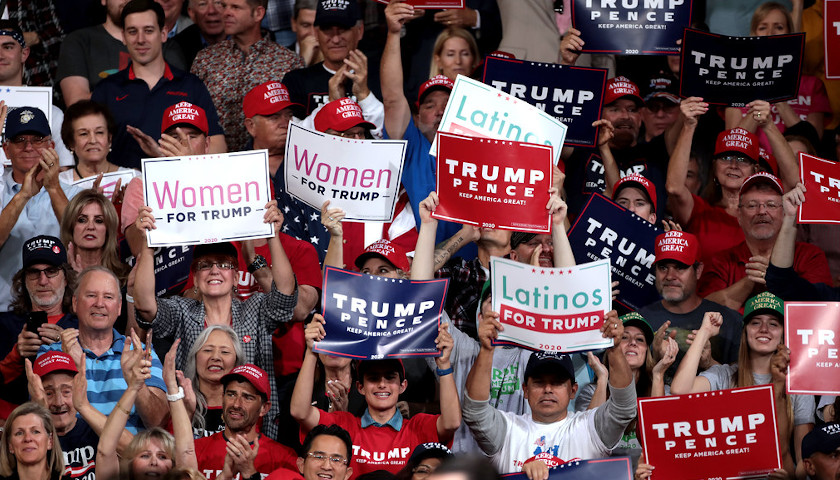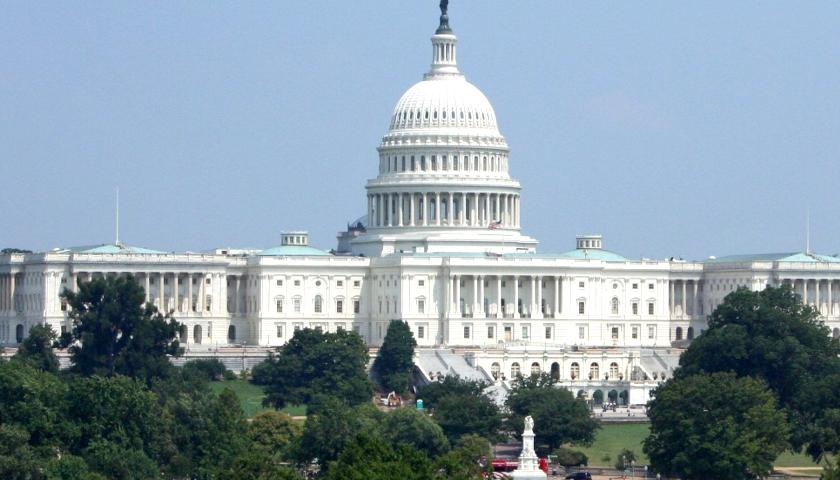by Curtis Ellis
As we contemplate a possible end to the ongoing pandemic shutdown, several questions lie ahead for us.
First – and foremost on everyone’s minds – is when will the lockdown end? And when it ends, what will be left of our economy?
One thing is certain now: The national lockdown is crushing small businesses.
Each of these businesses is part of an ecosystem of suppliers, vendors and, of course, customers – each of which is enmeshed in a wider financial web of bankers, mortgage lenders, bridge loans, accounts receivable special purpose entities, and insurance companies.
As we’re often told when considering ecosystems, knock out any part and the entire system may collapse. (Ostensibly, this is the reason the government requires detailed environmental impact statements, lest the inadvertent decimation of the snail darter sets off a cascade culminating with the end of all life on earth.)
Now that the entire ecosystem of business has been knocked out, the notion that it will be – or even can be – revived as it was before is questionable, at best.
While small retailers and mom-and-pop shops are getting crushed, the giants are hiring. And Walmart, at least, is giving out raises.
CNBC’s Jim Cramer wonders if America will be left with only three retailers – Amazon, Walmart, and Costco – after the shutdown.
We don’t know if Cramer’s nightmare will come true, but in the absence of deliberate countermeasures the pandemic shutdown could end up purging America of yet more small- and medium-sized enterprises and accelerate the corporate consolidation of our economy.
That would be a trifecta of disaster, hurting us on the economic, political, and geostrategic levels.
To understand the negative economic consequence, consider that startups and small enterprises traditionally have been America’s engine of innovation. They come up with new products and services and nimbly bring them to market.
Competition, as well as necessity, is the mother of invention and concentrating an industry in a few hands – a cartel – leads to stagnation not innovation. A few players can divide up the market and concoct schemes to drive up profit margins; they have no need to concoct new products.
Dominant players in an industry spend an inordinate amount of time trying to crush competitors, either by buying them out or selling their own product at severe discounts below the cost of production to drive them out. (China is using these tactics, especially the latter, against competitors on a global scale.)
Even in those instances where technological breakthroughs emerged from the research labs of large outfits such as Bell Labs, Western Electric, Xerox, or IBM, the relatively open patent system of times gone by allowed smaller players to license the technology and commercialize it.
Consolidation Undermines the National Interest
As for the negative geostrategic consequence, mainland China is an exemplar of consolidation on a global scale and it stands both to drive and benefit from further consolidation.
Note how big box stores – the end product of consolidation in the retail sector – drove American manufacturers to China.
Walmart had such a dominant position it would make vendors eager for shelf space an offer they couldn’t refuse. Walmart buyers would dictate the price it would pay, take it or leave it. And that was the “China Price,” what it cost to source the goods from China. The box on the shelf in aisle six bore a familiar name, but the Hamilton Beach coffeemaker inside was now made in China, not Wisconsin.
Further concentration of retail in fewer hands – particularly with Amazon – will only aggravate this trend unless retailers make a concerted effort (or are required) to buy American.
China has plans to exploit the pandemic-inspired economic chaos and further integrate itself into global supply chains through consolidation.
Smaller supply chain companies and startups with promising technology are vulnerable to buyouts in these hard times, and private equity sharks and Chinese investment funds are ready to swoop in. It’s possible some of the buyouts would not be blocked on national security grounds, though they should be. Allowing a hostile foreign power to expand its footprint in our economy is not in our national interest.
And corporate consolidation is definitely not in our political interest.
Small Is Beautiful
Contrary to the media’s misrepresentation of Trump’s base as an imaginary army of toothless, illiterate deplorables, it’s actually small businesses and independent tradesmen who make up the president’s base.
And that’s the same as it ever was.
Prosperous small and medium-sized regional businessmen financed the populist conservative uprising in 1964 that brought us Barry Goldwater and Ronald Reagan.
These independent businessmen – in towns and cities across the United States – loathed the Eastern establishment. They saw the government-corporate cartel of large money center banks manipulating credit and commodity prices to benefit Wall Street players at the expense of the real economy. David Rockefeller and his brother Nelson were the incarnation of everything these voters opposed in the GOP.
Since the founding of the Republican Party prior to the Civil War, small producers, property owners, and independent proprietors were a huge part of the GOP’s DNA.
The party championed those who made things – wage earners, tradesmen, and farmers – as opposed to those who profited from the labor of others while producing nothing – traders and financiers.
The party envisioned a decentralized economy centered on the small town where artisans, farmers and factories, producers and consumers, would work side by side in a regional economy.
Their vision of localism contrasted with the Democrats’ globalist vision of slave labor and ideologically motivated free trade. The plantation, after all, was part of a global economy. Britain, then “the workshop of the world” as China bills itself today, bought the South’s cotton and sold the ploughs and harrows slaves used to till the soil.
The Big Business Agenda
And just as Democrats of yore made common cause with the plantation owners, the Left prefers to deal with big business.
Progressives slammed “unsanitary” mom and pop butchers and grocers and touted the efficiency of the large chain stores. A&P, the Walmart of its day, found an ally in organized labor.
Driven by progressive ideals of social uplift by technocratic government, mid-century New York City urban planning czar Robert Moses bulldozed traditional smallholding neighborhoods he considered filthy and replaced them with gargantuan public housing projects. The federal government and David Rockefeller’s Chase Manhattan bank financed Moses’ empire building.
Cesar Chavez’s United Farm Workers preferred corporate agriculture to family farms – it would be easier to negotiate a contract with one giant agribusiness than with a thousand small operators with personal relationships with the farm hands. In a brutal corollary, Stalin preferred collectivized agriculture to kulaks, the independent land-owning peasants.
Now we see the corporate giant lining up to sign on to the Left’s social justice agenda. They support the philanthropies, speech codes, and advertiser boycotts the Left’s commissars demand.
They call themselves global corporations rather than American ones and actively promote “global citizenship” through advertising and sponsorships. America First? No way – the global economy first, last, and always!
When Republicans forget Main Street for Wall Street, when they abandon the Fortune 5,000 for the Fortune 50, they are not just betraying their heritage and their base, they are aiding and abetting their political enemies.
If we let pandemic economic recovery plans accelerate the corporate takeover of the economy, we will be cutting our own throats as well as those of small businesses.
– – –
Curtis Ellis is policy director with America First Policies. He was also a senior policy advisor with the Donald J. Trump presidential campaign in 2016.
Photo “Trump Supporters” by Gage Skidmore. CC BY-SA 2.0.






Excellent essay and rallying cry – except, as regards the Republican party, it is simply lamenting after the fact. The establishment Republicans have long abandoned their base. Like Democrats, they love to spend money and put themselves in the spotlight. As for the forthcoming “economic recovery” – recovery from what exactly? This contrived crisis played right into one of President Trump’s weaknesses, he had a reputation as having a phobia about germs – and phobia means “irrational fear”, i.e. disproportionate to the actual threat. Which is EXACTLY what we have had with the “plannedemic.”
And “recovery” is not on the agenda: continuing global economic disaster is. The globalists, having initiated and perpetuated the irrational fear, will play this out to impose as much economic devastation on the middle class as they can and, once that point is reached, they will quickly pivot their messaging as to how it was all overblown, out of proportion to the actual threat, an evil nationalist machination did this to destroy your livelihood.
Thank goodness we are here to save you with our global, one world, UN/WHO/IMF/BIS, ad nauseum, solution and here is just enough for you to slowly starve while we continue to rule. Track the CARES distributions and emphases. It isn’t on the small producer, but on the large business interests, i.e., globalists.
No, vote the issues, not the party. The Republican Party in Nevada threw its weight behind Sen. “Dirty Harry” Reid when a non-establishment Republican won the primary. The Republican Party left Ken Cuccinelli, former AG and known immigration hard-liner, swinging in the breeze which allowed a Clinton accolade, Terry McAuliffe to take the governorship in Virginia. And don’t even get started on John Boehner or Paul Ryan.
No, the Republican Party is no less craven and no less corrupt than the Democrat, its only hope is to be “hijacked” by the rare principled few who think independent of party.
What happens if the base opposes legislation essential to U.S. recovery?
The best chance for recovery is most assuredly not legislation, but a return to sound money and a free market – “legislation”, such as CARES, is the road to perdition. Want a good example? How about TARP and Son Of TARP?
If the absurd amount of money that is CARES is directed to rebuilding and diversifying our industrial base, sure – but that’s not what’s happening. Instead, it’s being used, in the main, to finance the globalists that are the bane of free markets. Like oligarchs everywhere, they hate competition and will go to no end to destroy it. “Legislation” is perfectly suited to that end.
We have tried the so-called free-market approach for almost forty years and it didn’t work. We still got the coronavirus epidemic. If so-called free market economics even lead to more deaths by reopening businesses too soon, we will have too many deaths and illnesses to provide us with enough employees to keep these businesses working safely. Dismantling government safety nets while wasting tax-payer money on excessive military budgets and reckless wars has made us all the more vulnerable to pandemics like the one we now have. Without strong government safety legislation, capitalism will crumble by its own weight. Indeed, capitalism and what you call free enterprise owe their life to the New Deal which saved conservatives from self-destruction. The Reagan way has been a disaster for everybody except the super-rich of the world.